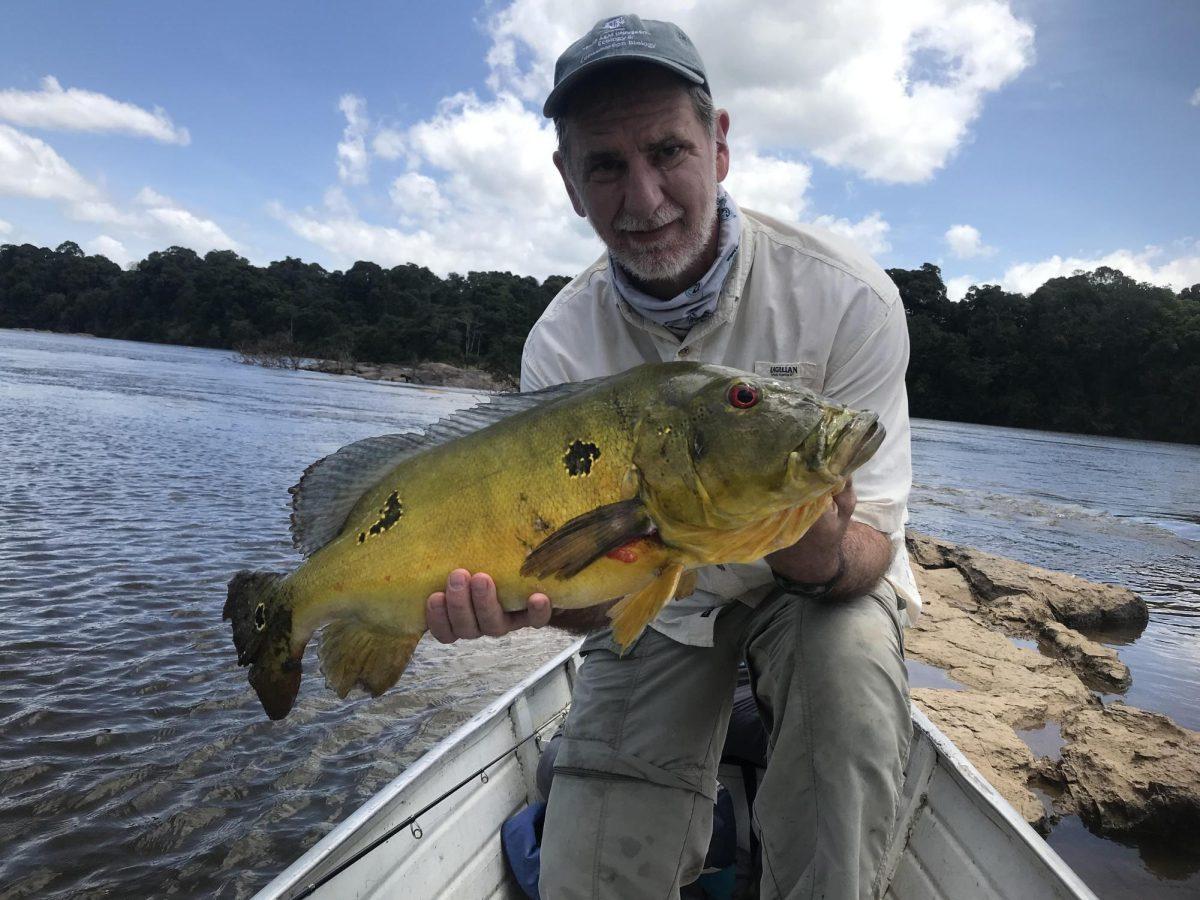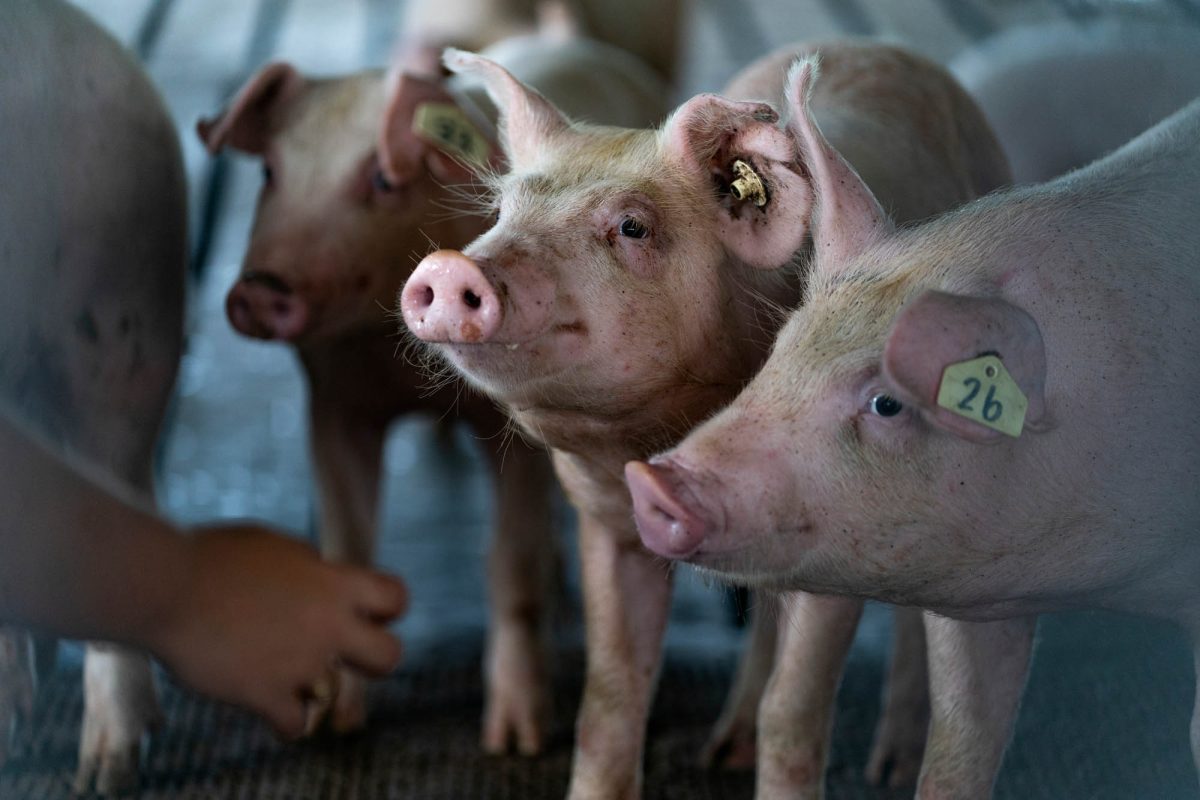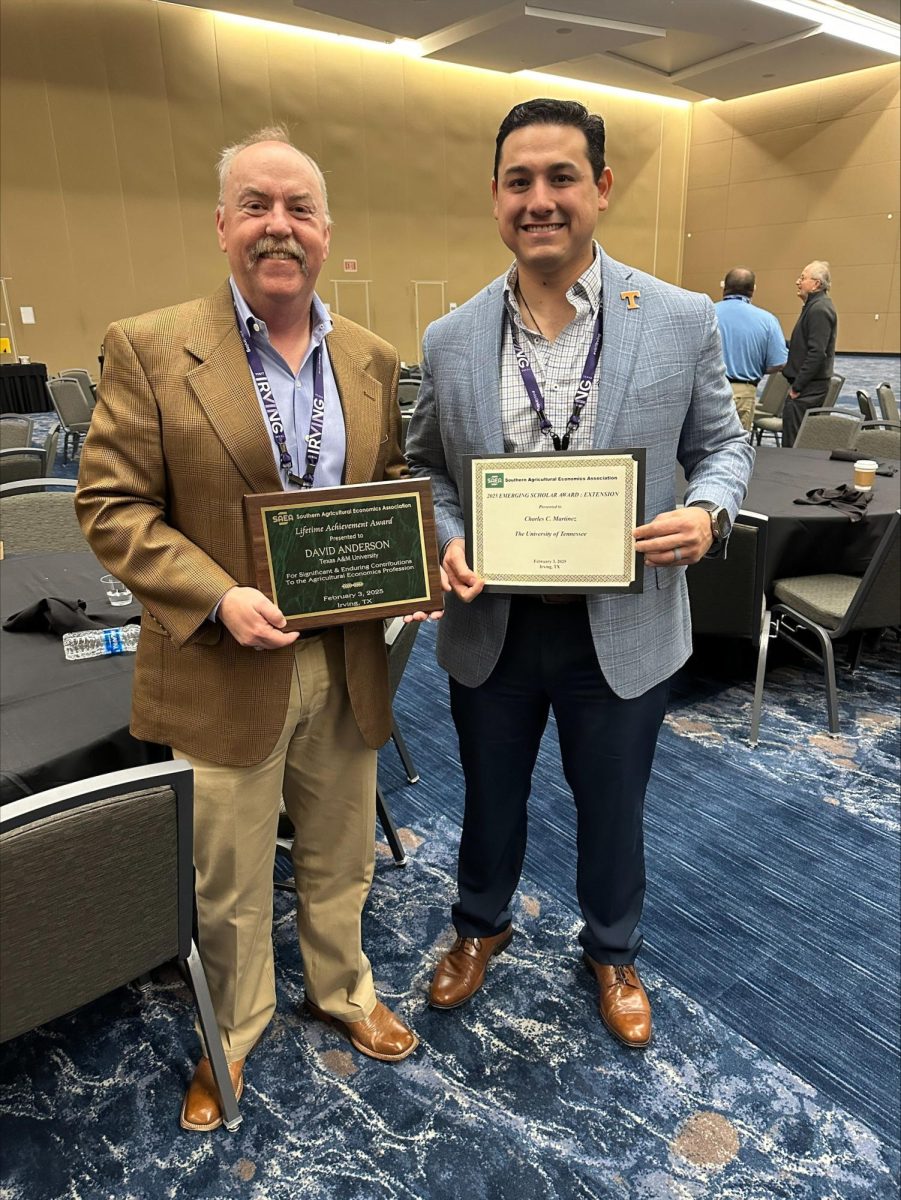While taking a deep dive into the study of fish ecosystems, Aggie scholars are making a splash in aquatic research at the Texas A&M Winemiller Aquatic Ecology Lab.
Lab namesake and professor Kirk Winemiller, Ph.D., researches ecology, food webs and the correlation between these topics and their effect on aquatic ecosystems in Texas. While researching, Winemiller and colleagues have even discovered new fish species, such as the Cichla cataractae.
Winemiller said he and a team of colleagues recognized an undescribed fish species while in Guyana researching the “niche relationship of two species of peacock bass, large predatory fish in the family Cichlidae.”
While exploring fishermen who post photos online of their trophy fish from the area, Winemiller noticed the fish appeared atypical compared to its look-alike species.
“Most species in that family are relatively small, and some are popular aquarium fish, but these peacock bass are popular sport fish, and there are two species in Guyana,” Winemiller said. “I was one of the people on the team who recently described it.”
Winemiller travels to immerse himself in research and assists local environments in Texas. Alongside Winemiller, academics and ecologists are continuing their extensive research in Texas waterways to witness the human impacts on the local environment.
“When you understand how ecological systems work, you perceive what we’re doing to them more deeply,” Winemiller said. “We want to try to minimize our carbon footprint.”
There is a sense of urgency among scientists to resolve issues such as climate change, waste and water scarcity affecting local and wide-scale populations, he said.
“There are a lot of environmental issues right here at home, in Texas,” Winemiller said. “At the same time, I am drawn to the tropics, and there are lots of problems in the tropics … A lot of that biodiversity is under threat from human impact. The tropical region is changing very rapidly just from human population growth, economic development, changing land use.”
On a larger scale, Winemiller said a part of their mission is problem-solving that benefits people in the state of Texas and more broadly in the U.S.
A&M professor and aquatic biologist Joshuah Perkin, Ph.D., works alongside Winemiller. Perkin leads the Riverscape Ecology Lab at A&M, which has delved further to make new discoveries about conservation studies, ecology relationships, fish species and more.
“We think about how differences in the size of rivers, the amount of flows in rivers or the human alterations that happen to rivers how that influences the distribution, abundance and interactions that freshwater species have with each other and the environment,” Perkin said when discussing the difference in research of riverscape and landscape ecology.
Perkin’s research looks at invasive species and how their positions within the ecosystem can lead to a chain of ecological reactions.
Texas riverscapes are witnessing chain reactions from invasive fish species such as the “sucker-mouthed armored catfish,” which are common aquarium fish because they eat algae and clean the glass, Perkin said.
“They cause problems for native species because they consume algae that native fish and invertebrates would consume,” Perkin said. “These armored catfish also burrow into banks and cause banks to collapse. This is happening in the Comal, San Marcos and the San Felipe Creek in Del Rio.”
Perkin said agencies are interested in controlling the populations of armored catfish through spearfishing tournaments.
Spearfishing’s positive impact on reducing the invasive population of armored catfish was proven when Perkin’s team did a “mark-recapture model where [they] put tags in fish.” After killing the fish, Perkin said the spearfishers reported those tags to researchers.
“In a week’s time, if 30 fish are speared in the river, the population does decline, and [they have] some evidence that these management approaches are helping to suppress invasive species,” Perkin said.
Perkin said there are many threats to freshwater ecosystems and their populations throughout Texas.
“In parts of Texas during the drought, there’s not a lot of water quantity in the rivers,” Perkin said. “There are population declines for fish during those time periods.”
Doctoral candidate Rose Blanchard works alongside Perkin in the Riverscape Ecology lab and the Paleo Ecology Evolution and Climate Lab. Blanchard said she studies the western mosquito fish, which feed off mosquito larvae.
Blanchard said she visits streams in College Station to capture fish, later measuring and photographing them in the lab. From her data, she studies the differences between sexes. Blanchard said western mosquito fish are dispersing across the state, killing native fish species.
“In the mid-1800s, people realized that these fish were eating mosquito larvae and were like, ‘Wow, we don’t like mosquitos because they give us Malaria and then we die,’ so they took these fish and plopped them into the water all around the world,” Blanchard said. “Now they are the most widely distributed freshwater fish.”
















Cecil Kelley • Feb 23, 2024 at 8:26 pm
Great article by greater writer!!